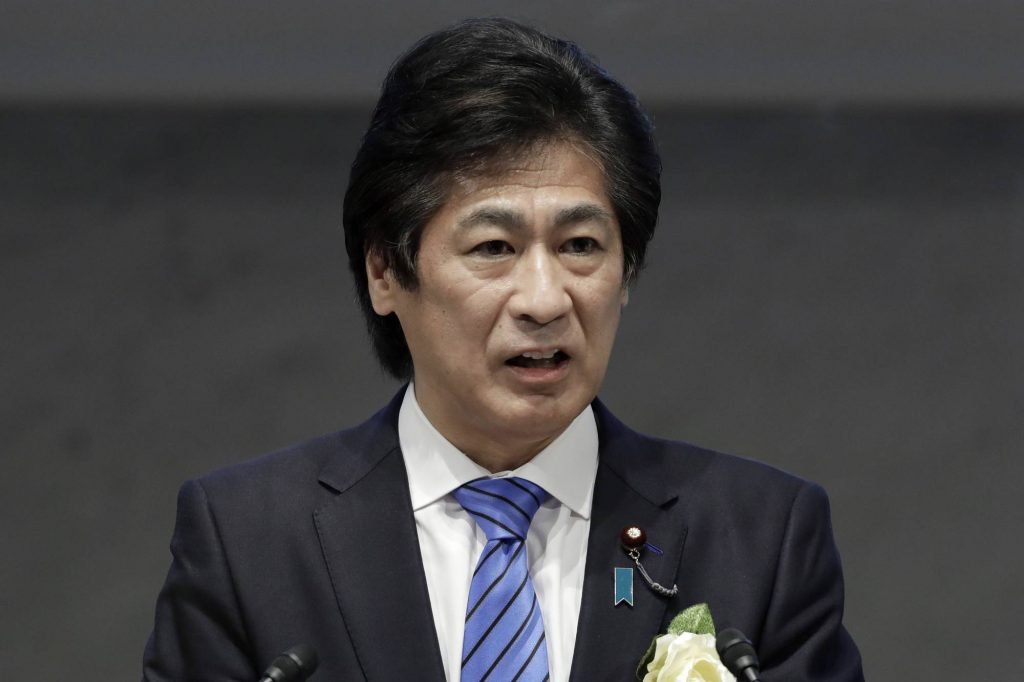
Fans were banned from the pandemic-postponed Tokyo Olympics which will open in two weeks, following a state of emergency on Thursday, Olympic Minister Tamayo Marukawa told the Japanese news agency Kyodo.
The ban was announced by the International Olympic Committee and Japanese organizers, reducing the games to a made-for-TV event.
Fans from aboard were banned months ago, and the new measures announced by Japanese Prime Minister Yoshihide Suga will clear venues around Tokyo — indoor and outdoor — of any fans at all.

The emergency declaration made for a rude arrival in Japan for IOC President Thomas Bach, who landed in Tokyo on Thursday just hours before the new measures were announced. He was to spend three days in self-isolation at the five-star hotel that lodges IOC members.
Suga said the state of emergency would go into effect on Monday and last through Aug. 22. This means the Olympics, opening on July 23 and running through Aug. 8, will be held entirely under emergency measures. The Paralympics open on Aug. 24.
“Taking into consideration the impact of the delta strain, and in order to prevent the resurgence of infections from spreading across the country, we need to step up virus prevention measures,” Suga said.
Suga, who had long favored fans, hinted at a no-fan Olympics in announcing the state of emergency.
“I have already said I won’t hesitate to have no spectators,” he added.
Just two weeks ago, organizers and the IOC allowed venues to be filled to 50% of capacity but crowds not to exceed 10,000. The state of emergency has forced a late turnaround, which was always an option if infections got worse.
“We will have to consider the option of no spectators,” Marukawa said in opening remarks with the IOC and others as they went into meetings to discuss a ban on fans.
The main focus of the emergency is a request for bars, restaurants and karaoke parlors serving alcohol to close. A ban on serving alcohol is a key step to tone down Olympic-related festivities and keep people from drinking and partying. Tokyo residents are expected to face stay-home requests and watch the games on TV from home.
“How to stop people enjoying the Olympics from going out for drinks is a main issue,” Health Minister Norihisa Tamura said.

The present state of emergency ends Sunday. Tokyo reported 896 new cases on Thursday, up from 673 a week earlier. It’s the 19th straight day that cases have topped the mark set seven days prior. New cases on Wednesday hit 920, the highest total since 1,010 were reported on May 13.
The no-fan atmosphere will include the opening ceremony at the $1.4 billion National Stadium, which is traditionally the most watched event during the Olympics.
“It’s not too late. Cancel or postpone it,” said Yukio Edano, the head of the Constitutional Democratic Party of Japan, the largest opposition party to Suga’s LDP
- Daniel Negreanu Finally Breaks His Losing Streak to Win Big in Super High Roller Bowl
- Baby Died After Her Mother Left Her On A Trip For Six Days
- OUTSPOKEN: Why Brazil Is The Most Important Country Right Now? By Will Lisil
- How To Build My Artistic Identity In The Metaverse?
- The Spike Protein From Covid Vaccine Can Persist In The Body For Months, Causing Debilitating Symptoms, According To A Study
The uptick in infections has also forced the Tokyo city government to pull the Olympic torch relay off capital streets, allowing it to run only on remote islands off the Tokyo coast. It’s unclear how the torch will enter the stadium for the opening ceremony.
“The infections are in their expansion phase and everyone in this country must firmly understand the seriousness of it,” Dr. Shigeru Omi, a top government medical adviser, said.
He urged authorities to quickly take tough measures ahead of the Olympics, with summer vacations approaching.
Omi has repeatedly called for a ban on spectators, and has said it’s “abnormal” to hold the Olympics during a pandemic.
Separately, a government COVID-19 advisory panel met Wednesday and expressed concerns about the ongoing resurgence of the infections.








